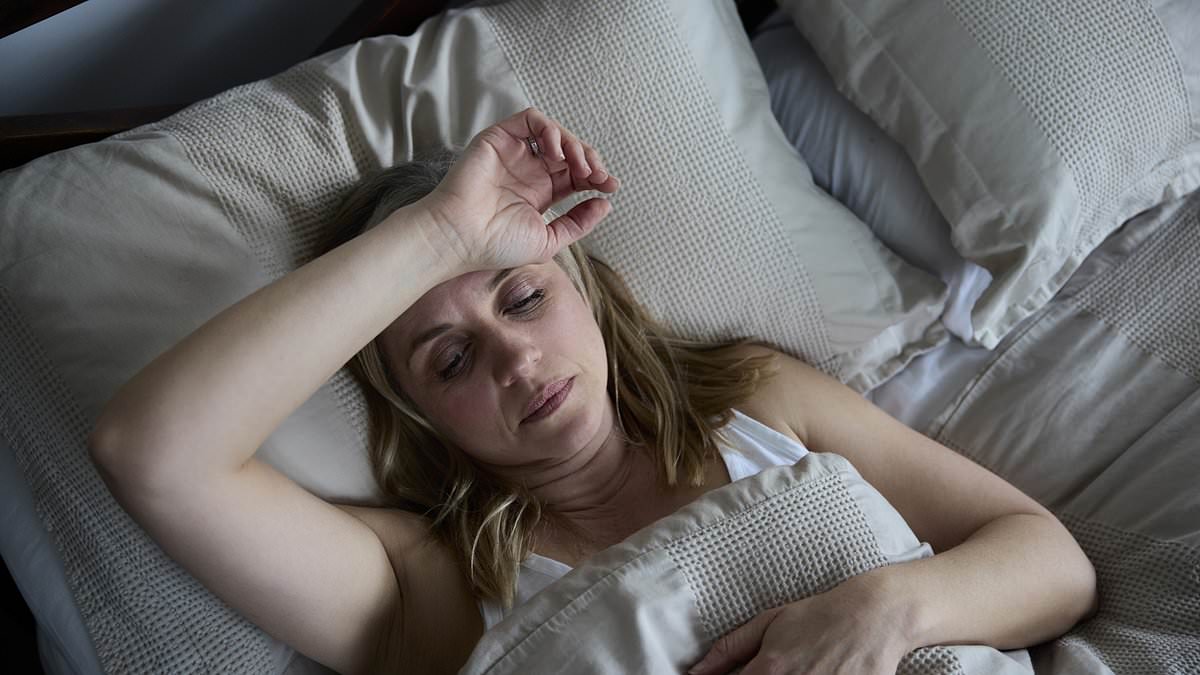Women are more than twice as likely to develop bipolar disorder in the years leading up to the menopause, a study suggests.
Researchers examined data on 128,294 UK women in the four years around their final period.
Analysis revealed there was a 112 per cent increase in bipolar during perimenopause, while the onset of major depressive disorder increased by 30 per cent.
Perimenopause happens when a woman has symptoms of menopause, such as anxiety, mood swings and brain fog, but still has a period.
Study leader Professor Arianna Di Florio, of Cardiff University, said: ‘During perimenopause approximately 80 per cent of people develop symptoms, but the impact on the onset of severe mental illness was unknown.

Analysis revealed there was a 112 per cent increase in bipolar during perimenopause, while the onset of major depressive disorder increased by 30 per cent (stock image)

Study leader Professor Arianna Di Florio, of Cardiff University (pictured), said: ‘During perimenopause approximately 80 per cent of people develop symptoms, but the impact on the onset of severe mental illness was unknown’
‘In my clinic, I found that some women, previously living lives without any experience of severe mental health issues, developed severe mental illness around the time of the menopause.
‘I feel a duty towards the women I work with.
‘I wanted to provide them and other women with the answers to why this terrible thing happened to them.’
Professor Di Florio said the findings could help provide additional support for women who have ‘previously been left in the dark’.
‘Research like this is vital, as women experience these profound changes in their lives and bodies and are currently let down by the lack of detailed understanding of these changes,’ she added.
‘We have been able to expand our knowledge of the mental health changes associated with perimenopause, which can help provide explanations, diagnoses and support for women who have previously been left in the dark about what is happening to them.’
The study, published in the journal Nature Mental Health, was conducted in collaboration with the charity Bipolar UK and the UK Biobank.
Clare Dolman, an ambassador for Bipolar UK and patient and public involvement lead on the project, said the findings could be ‘life-saving’.
She added: ‘This study is extremely important as it demonstrates for the first time in a very large sample that the menopausal transition has a measurable impact on women’s mental health.

Bipolar disorder is a mental health condition that affects your moods, which can swing from 1 extreme to another (stock image)
‘For me, this confirms what we have observed and heard from women with bipolar themselves; that hormonal change is a very important factor in mood disorders and one that deserves to be researched thoroughly.
Read More
Are your mood swings regular… or a sign you are bipolar? Expert shares three ways to tell

‘As a woman with bipolar myself who has gone through menopause, I am looking forward to the research community recognising the importance of this funding.
‘The studies will allow us to predict an individual woman’s risk of becoming unexpectedly ill at this time of life. That knowledge could be life-saving.’
The study focussed on first-onset experiences of psychiatric disorders during perimenopause and did not investigate links with the recurrence of pre-existing psychiatric disorders.
Bipolar UK said further research focussing on people with a previous history of mental illness is needed.
